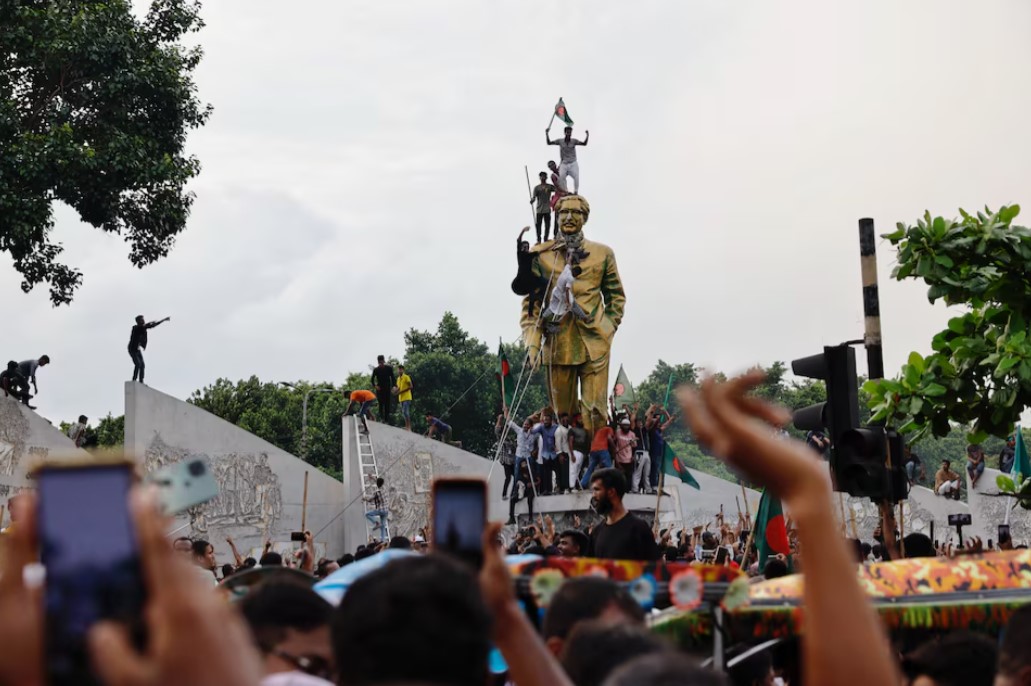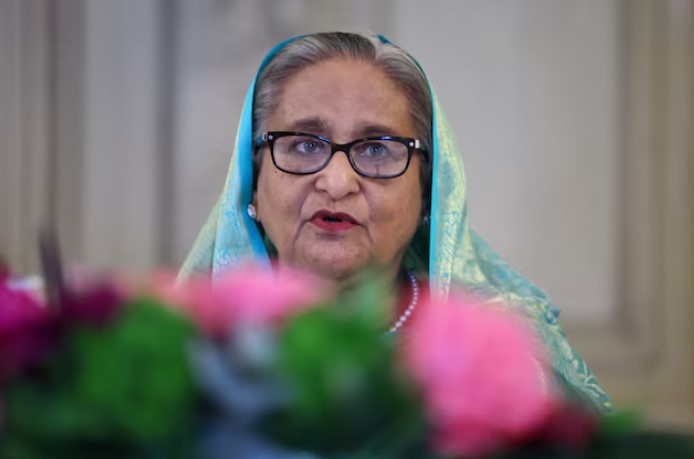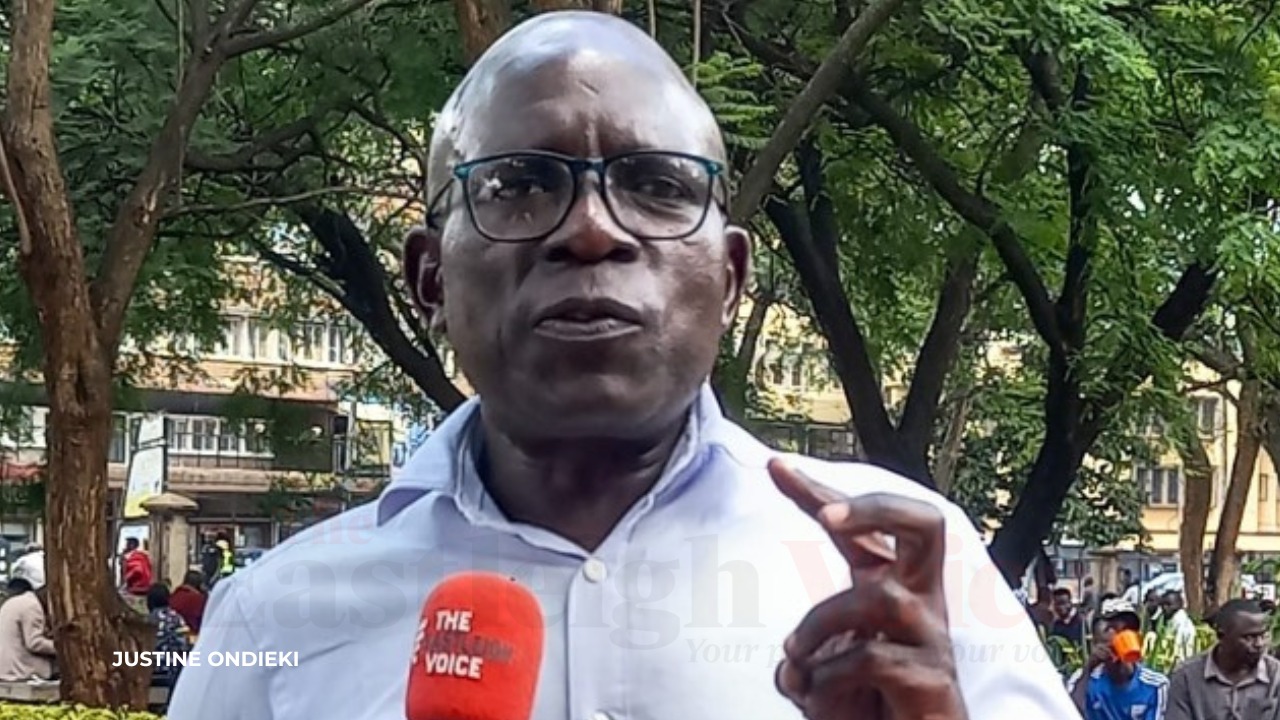What's behind Bangladesh's protest against ex-PM Sheikh Hasina?

Bangladesh's army chief will meet student protest leaders on Tuesday as the country awaits the formation of a new government a day after PM Hasina resigned and fled the country following a violent uprising against her rule.
Bangladesh is on the boil again with close to 100 people killed on Sunday as protesters, calling for Prime Minister Sheikh Hasina's resignation, clashed with security forces and supporters of the ruling party.
Bangladesh's army chief will meet student protest leaders on Tuesday as the country awaits the formation of a new government a day after PM Hasina resigned and fled the country following a violent uprising against her rule.
Student leaders, who spearheaded a movement against job quotas that turned into a call for Hasina to resign, said early on Tuesday that they want a new interim government with Nobel Peace laureate Muhammad Yunus as its chief adviser.
More To Read
- Bulgarian Government resigns amid mass protests over corruption, economic woes
- Bangladesh court sentences ex-PM Sheikh Hasina to death in absentia for crimes against humanity
- 19 killed as Bangladeshi air force jet crashes into school building in Dhaka
- Leaked audio implicates former Bangladesh PM Hasina in deadly 2024 protest crackdown
- Bangladesh: Exiled ex-PM Sheikh Hasina on trial
- In world's largest refugee camps, Rohingya mobilise to fight in Myanmar
Bangladesh Army Chief General Waker-Uz-Zaman plans to meet the protest organisers at 12 pm local time (0600 GMT) on Tuesday, the army said in a statement, a day after Zaman announced Hasina's resignation in a televised address and said an interim government would be formed.
Last month, at least 150 people were killed and thousands injured in violence touched off by student groups protesting against reserved quotas in government jobs.
Here are details of the new protests and their history:
Calls for Hasina to step down
The 'Students Against Discrimination' group, which was at the forefront of last month's job quota protests, is leading the latest demonstrations.
The protests to reform the quota system paused after the Supreme Court scrapped most quotas on July 21. Protesters, however, returned last week demanding a public apology from Hasina for the violence, restoration of internet connections, reopening of college and university campuses and release of those arrested.
 Bangladeshi Prime Minister Sheikh Hasina speaks as she meets with British Foreign Secretary David Cameron (not pictured) during the annual Munich Security Conference, in Munich, Germany February 17, 2024. (Photo: REUTERS/Wolfgang Rattay)
Bangladeshi Prime Minister Sheikh Hasina speaks as she meets with British Foreign Secretary David Cameron (not pictured) during the annual Munich Security Conference, in Munich, Germany February 17, 2024. (Photo: REUTERS/Wolfgang Rattay)
By the weekend, the demonstrations spiralled into a campaign seeking Hasina's ouster as demonstrators demanded justice for people killed last month.
The students' group called for a nationwide non-cooperation movement starting Sunday with a single-point agenda - Hasina must resign.
Why do protesters want Hasina's resignation?
The protesters blame Hasina's government for the violence during the protests in July. Hasina's critics and rights groups have accused her government of using excessive force against protesters, a charge the government denies.
What has Hasina said recently?
Hasina, 76, and her government initially said students were not involved in the violence during the quota protests and blamed the Islamic party, Jamaat-e-Islami, and the main opposition Bangladesh Nationalist Party (BNP) for the clashes and arson.
But after violence erupted again on Sunday, Hasina said that "those who are carrying out violence are not students but terrorists who are out to destabilise the nation".
The student group has declined Hasina's offer for talks to resolve the crisis.
What triggered the job quota protests?
Demonstrations started at university campuses in June after the High Court reinstated a quota system for government jobs, overturning a 2018 decision by Hasina's government to scrap it.
The Supreme Court suspended the high court order after the government's appeal and then dismissed the lower court order last month, directing that 93% of jobs should be open to candidates on merit.
 People celebrate the resignation of Bangladeshi Prime Minister Sheikh Hasina in Dhaka, Bangladesh, August 5, 2024. (Photo: REUTERS/Mohammad Ponir Hossain)
People celebrate the resignation of Bangladeshi Prime Minister Sheikh Hasina in Dhaka, Bangladesh, August 5, 2024. (Photo: REUTERS/Mohammad Ponir Hossain)
Flagging economy, unemployment
Experts also attribute the current unrest in Bangladesh to stagnant job growth in the private sector, making public sector jobs, with their accompanying regular wage hikes and privileges, very attractive.
The quotas sparked anger among students grappling with high youth unemployment, as nearly 32 million young people are out of work or education in a population of 170 million.
The flagging economy, once among the world's fastest-growing on the back of the country's booming garments sector, has stagnated. Inflation hovers around 10 per cent per annum and dollar reserves are shrinking.
Hasina wins January election
Hasina retained power for a fourth straight term in a January general election boycotted by the BNP, which accused her Awami League of trying to legitimise sham elections.
BNP said 10 million party workers were on the run ahead of the election with nearly 25,000 arrested following deadly anti-government protests on October 28.
Hasina blamed the BNP for instigating anti-government protests that rocked Dhaka ahead of the election and left at least 10 people dead.
Top Stories Today











































